Although I WeirDo (怪胎) features two lovers who both suffer from obsessive compulsive disorder (OCD), the film is less about the mental health issue, and more an allegory exploring change in relationships.
Po-ching (Austin Lin, 林柏宏) and Ching (Nikki Hsieh, 謝欣穎) quickly get together after leading lonely, reclusive lives due to their irrational fear of germs and stringent routines. Things seem too good to be true when they finally find someone who totally understands them, and despite their particularities, their life habits mesh perfectly after they begin cohabiting.
Interestingly, Po-ching’s symptoms include a compulsion to wash and disinfect his hands, which is highly relevant in the COVID-19 era.
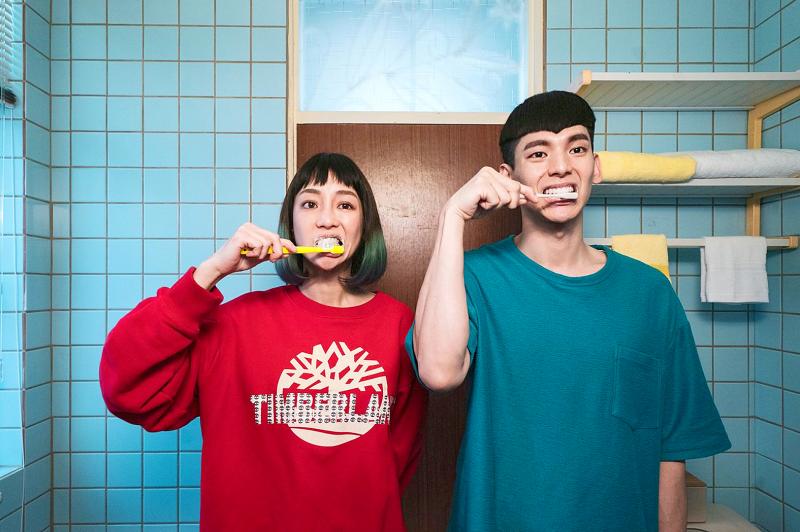
Photo courtesy of atmovies.com
But one night after Po-ching promises Ching that their relationship will never change, he wakes up free of the disorder.
Instead of being happy for him, Ching freaks out as the only connection between them is gone, and desperately drags him to see all sorts of experts to get his OCD back. So, with a simple change of circumstances, what brought the couple together tears them apart.
The mental health issue here is more of a device to tell the love story between two people who are drawn to each other by their problems. It’s a very simple tale, but the questions it raises are highly relevant to relationships and provide a more mature, realistic exploration than the typical sappy Taiwanese romcom.
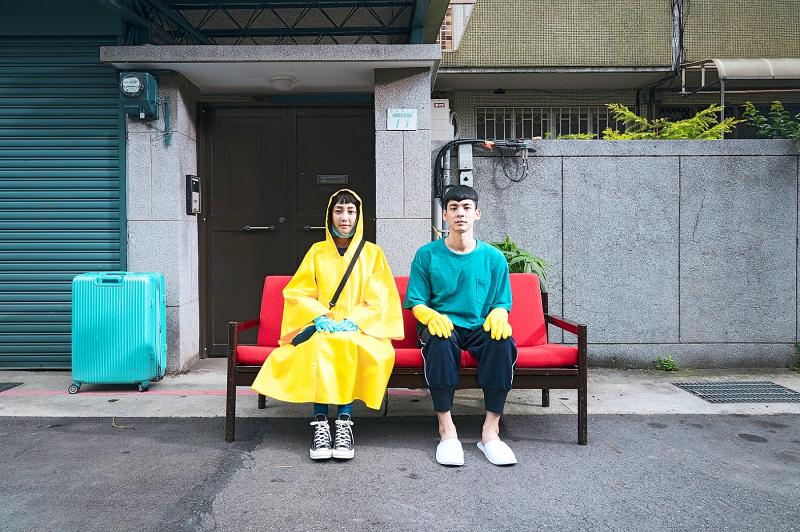
Photo courtesy of atmovies.com
Were they drawn to each other just because of their differences from typical folks? Are they actually holding each other back? Would it truly be a happier ending if they just accepted their problems and remained the same forever?
The film purposely takes on a slightly surreal tone, and it’s pointless to wonder about certain details that don’t quite make sense. But it’s still important to examine how director Liao Ming-yi (廖明毅) portrays mental illness, which is often trivialized and stigmatized in Taiwan.
First of all, although the characters see themselves as “weirdos,” their disorder is presented as a legitimate medical issue, the symptoms explained clearly in the beginning when Po-ching visits a psychiatrist. This is already a good sign.
The struggle between acceptance and change is treated quite realistically, as they both long to live “normal” lives like “normal” people, but they take solace in each other’s inability to do so. But when Po-ching becomes “normal,” Ching angrily asks him in one scene: “So you think I’m abnormal now?”
Although Po-ching sees a psychiatrist regularly, he doesn’t attend therapy as the doctor suggests, merely taking the pills prescribed. It’s very unlikely that he will suddenly be “cured” that way, though there have been some documented cases of it happening, so it’s not entirely impossible. Most recovery processes take years, but that would bog down the plot even more, which is already tedious and repetitive at points; just like the disorder.
The most crucial point, however, is that it’s made clear that the two don’t have a choice in their mental illness. And the same goes for Po-ching’s sudden recovery, he didn’t have a choice either. But the only constant in the world is change, and how many relationships have the foundation to survive that?
The two leads deliver convincing performances that portray the disorder in a sympathetic fashion, rarely venturing into caricature. Despite the heavy subject matter, the tone remains light-hearted and the pair’s various compulsions are quite endearing in the first half before everything falls apart.
There are still some issues with the patriarchal attitudes in Taiwanese cinema. Po-ching doesn’t like that Ching works as a figure drawing model (even though she poses fully covered in a blanket, which doesn’t make sense as the point of these sessions is to draw the human figure) and asks her to quit her job so he can provide for her.
She’s actually happy that he feels jealous and gladly accepts, which is often the beginning of an abusive and controlling relationship. But remember that everything is slightly fantastical in this movie, and this setting also works toward the plot and is not nearly as egregious as other misguided Taiwanese love movies.
Liao employs vibrant colors and carefully framed shots, and uses many subtle visual devices such as the format changing from square to wide angle upon Po-ching’s recovery.
One of the biggest promotion points of the movie is that it’s the first film in Asia to be shot and edited entirely on an iPhone. This reviewer wouldn’t have been able to tell the difference if not informed beforehand, which probably speaks more to the capabilities of the iPhone than anything relevant to the movie. Liao certainly has the skills to excel visually on any device.

It’s Aug. 8, Father’s Day in Taiwan. I asked a Chinese chatbot a simple question: “How is Father’s Day celebrated in Taiwan and China?” The answer was as ideological as it was unexpected. The AI said Taiwan is “a region” (地區) and “a province of China” (中國的省份). It then adopted the collective pronoun “we” to praise the holiday in the voice of the “Chinese government,” saying Father’s Day aligns with “core socialist values” of the “Chinese nation.” The chatbot was DeepSeek, the fastest growing app ever to reach 100 million users (in seven days!) and one of the world’s most advanced and
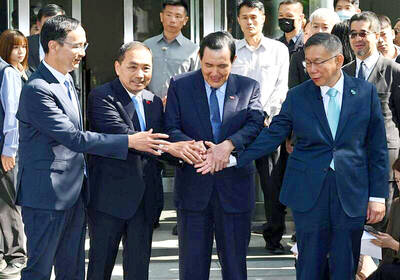
Has the Taiwan People’s Party (TPP) changed under the leadership of Huang Kuo-chang (黃國昌)? In tone and messaging, it obviously has, but this is largely driven by events over the past year. How much is surface noise, and how much is substance? How differently party founder Ko Wen-je (柯文哲) would have handled these events is impossible to determine because the biggest event was Ko’s own arrest on multiple corruption charges and being jailed incommunicado. To understand the similarities and differences that may be evolving in the Huang era, we must first understand Ko’s TPP. ELECTORAL STRATEGY The party’s strategy under Ko was
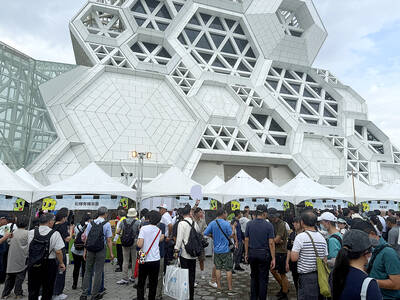
The latest edition of the Japan-Taiwan Fruit Festival took place in Kaohsiung on July 26 and 27. During the weekend, the dockside in front of the iconic Music Center was full of food stalls, and a stage welcomed performers. After the French-themed festival earlier in the summer, this is another example of Kaohsiung’s efforts to make the city more international. The event was originally initiated by the Japan-Taiwan Exchange Association in 2022. The goal was “to commemorate [the association’s] 50th anniversary and further strengthen the longstanding friendship between Japan and Taiwan,” says Kaohsiung Director-General of International Affairs Chang Yen-ching (張硯卿). “The first two editions
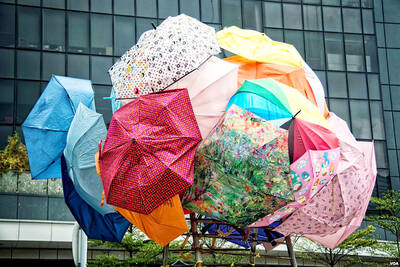
It was Christmas Eve 2024 and 19-year-old Chloe Cheung was lying in bed at home in Leeds when she found out the Chinese authorities had put a bounty on her head. As she scrolled through Instagram looking at festive songs, a stream of messages from old school friends started coming into her phone. Look at the news, they told her. Media outlets across east Asia were reporting that Cheung, who had just finished her A-levels, had been declared a threat to national security by officials in Hong Kong. There was an offer of HK$1m (NT$3.81 million) to anyone who could assist